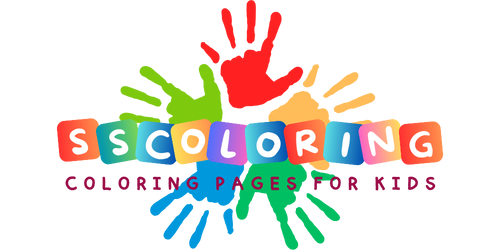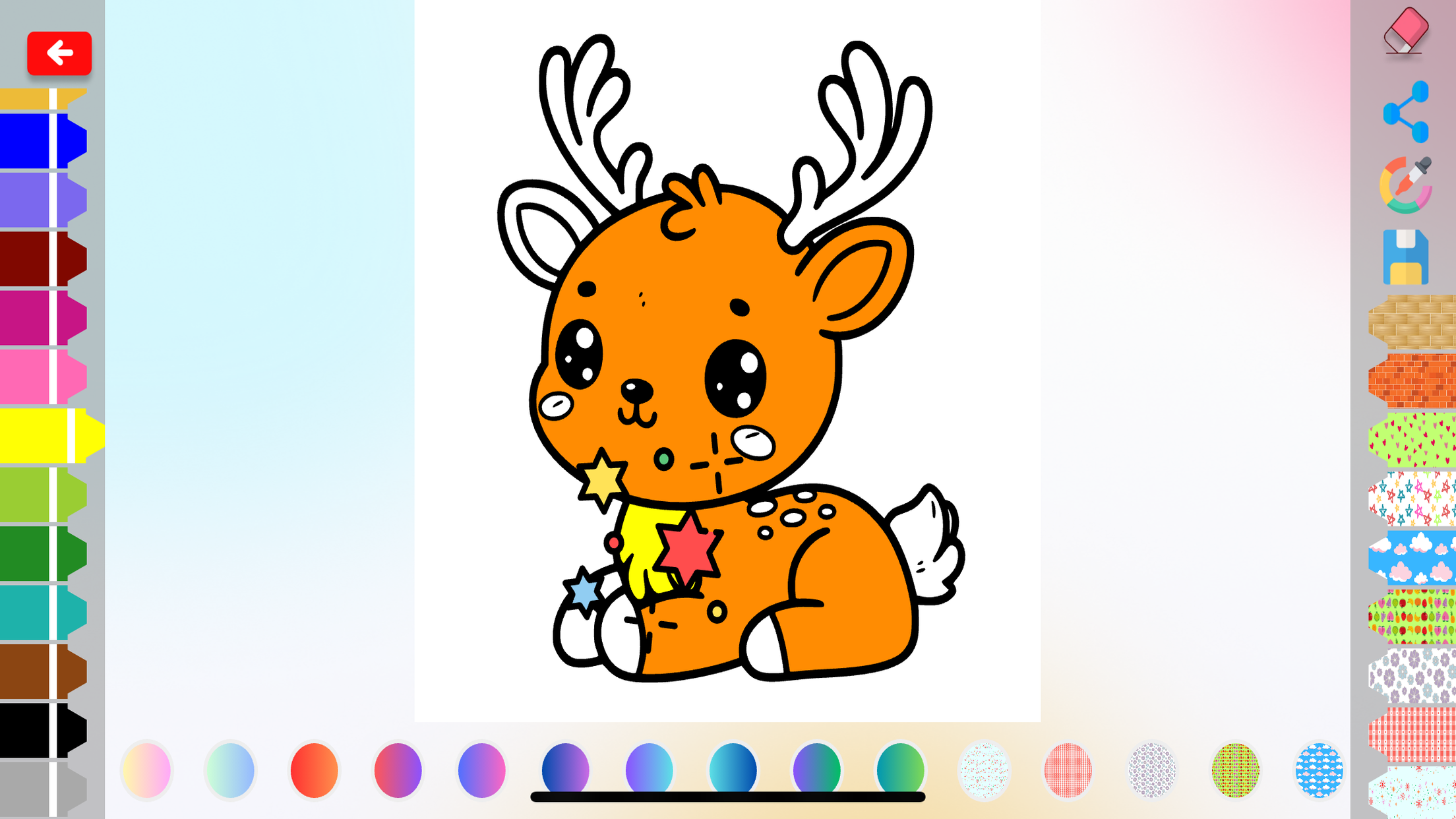In the heart of every child, there exists a kaleidoscope of colors, waiting to burst forth onto the blank canvas of their world. Remember the days when a simple box of crayons held the promise of endless adventures? When a blank sheet of paper transformed into enchanted forests, bustling cityscapes, or even far-off galaxies?
Coloring isn’t merely about neat lines and staying within the boundaries; it’s a portal to a realm where imagination reigns supreme. Of course, we all know it helps little hands develop those oh-so-important fine motor skills. But did you know that coloring can also be a mindfulness practice for our little ones, a way to quiet the mind and find a moment of peace in a whirlwind world? It’s a shared experience that weaves connections between hearts, fostering laughter and creativity in the most magical ways.
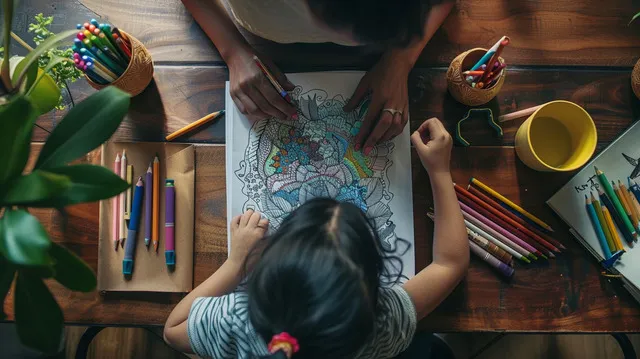
As a passionate advocate for nurturing young minds, I’ve embarked on a quest to uncover the most enchanting and unusual coloring escapades for your little artists. Prepare to venture beyond the confines of ordinary coloring books and discover a world brimming with vibrant possibilities!
Classic Coloring Reimagined
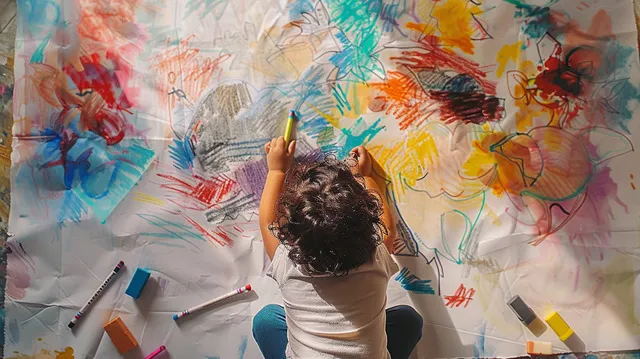
Let’s begin our journey by breathing new life into the classic coloring experience. We’ll hold onto the beloved coloring pages but infuse them with a touch of magic and wonder.
Personalized Masterpieces
Imagine the delight on your child’s face when they see their very own name adorning a coloring page! Websites like SSColoring offer a treasure trove of customizable options, from alphabet letters adorned with whimsical creatures to full-fledged scenes featuring your child as the star.
Unleash the Storyteller
Why not transform coloring time into a storytelling adventure? Present your little one with a “Draw Your Dream House” coloring page and watch as their imagination takes flight. Or, challenge them to illustrate a scene from their favorite fairy tale, allowing their creativity to weave a visual tapestry.
Coloring Challenges for the Bold
For those who crave a bit of excitement, introduce “coloring challenges”! Perhaps one day, it’s all about using warm hues like fiery oranges and sunshine yellows. The next, you might embark on a quest to find all the hidden objects within a complex scene. These playful twists add a dash of competition and keep the coloring spirit alive.
Exploring Textures & Dimensions
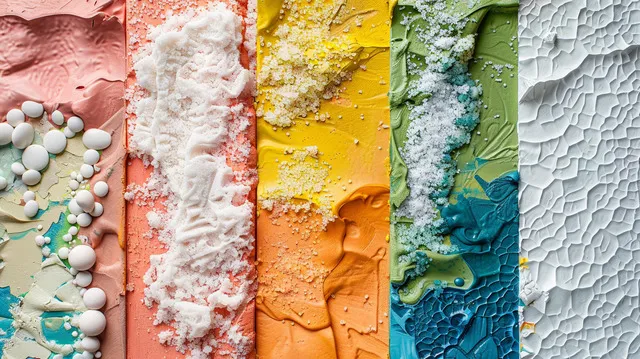
Who says coloring has to be flat? Let’s add a tactile twist to the artistic journey, inviting little fingers to explore the world of textures and dimensions.
- Salt Painting: Prepare to be mesmerized as ordinary salt transforms into a shimmering canvas! Have your child create a watercolor masterpiece, then sprinkle salt onto the wet paint. As the water evaporates, the salt crystals will create a beautiful, almost crystalline effect. It’s like capturing a piece of the starry night sky!
- Wax Resist: For a delightful surprise, invite your child to draw a picture using white crayons on white paper. At first, it might seem like nothing is happening, but wait for the magic! Next, have them paint over the entire paper with watercolors. As the colors wash over the wax, their hidden drawings will magically appear, like secrets whispered on the wind.
- Puffy Paint Party: Who doesn’t love a bit of 3D fun? Puffy paint is the perfect way to add dimension and excitement to your child’s creations. Let them outline their drawings with this magical substance, then watch as the lines puff up and come to life. Suddenly, their artwork becomes a tactile adventure!
Coloring Adventures in Nature
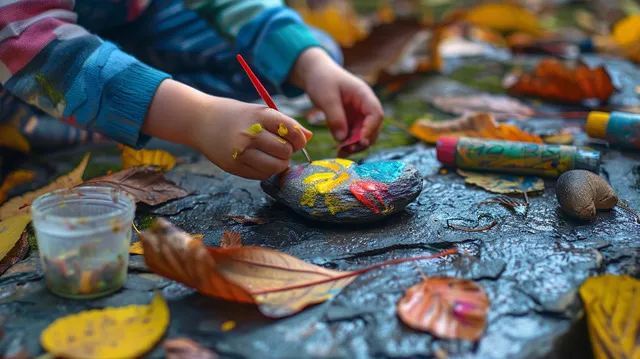
Let’s step outside and embrace the vibrant hues of the natural world! In this section, we’ll swap traditional paper for canvases found in our own backyards and parks.
Rock Painting
Every rock tells a story, and it’s time for your child to add their own chapter. Gather smooth stones from a nature walk or your garden, and let your little one transform them into tiny works of art. Non-toxic acrylic paints are perfect for this adventure, and a coat of clear sealant will ensure their creations stand the test of time. Encourage them to paint animals, patterns, inspirational words – the possibilities are as endless as the sky above!
Leaf Rubbing
As the leaves change color and begin to fall, a world of artistic inspiration awaits. Gather a variety of leaves, some crayons or colored pencils, and thin paper (tracing paper works beautifully). Place a leaf under the paper, then gently rub the crayon or pencil over it to reveal the leaf’s unique veins and patterns. Create a collection of leaf rubbings, then use them to decorate cards, bookmarks, or even a nature-themed banner.
Nature Scavenger Hunt with a Coloring Twist
Combine the thrill of exploration with the joy of coloring! Create a scavenger hunt list that includes items like “something red,” “a feather,” or “a smooth stone.” Once your child finds each item, have them recreate it on paper using their favorite coloring tools. This activity encourages observation, appreciation for nature’s details, and a deeper connection to the world around them.
Storytelling Through Color
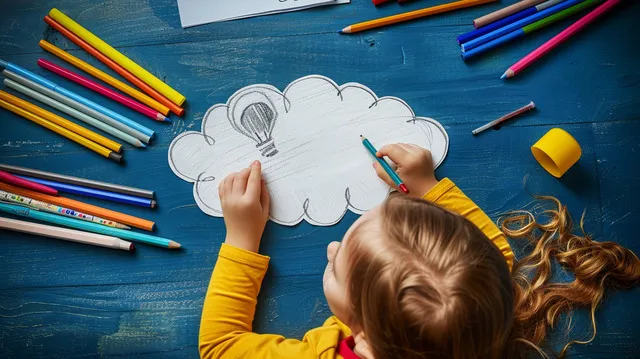
Colors have the power to evoke emotions, spark conversations, and even weave tales as captivating as any bedtime story. Let’s explore how coloring can become a gateway to storytelling and self-expression for your little ones.
“Finish the Story” Coloring Pages
Set the stage for a creative collaboration! Present your child with a coloring page that depicts the beginning of a story. Perhaps it’s a brave knight setting off on a quest or a curious explorer venturing into a hidden jungle. Let their imagination run wild as they complete the tale through color, adding details and characters that bring the narrative to life.
Emotion Coloring
Every hue holds a unique emotional resonance. Provide your child with a picture of a character (or let them draw their own) and encourage them to select colors that represent the emotions swirling within. Is the character joyful? Sad? Angry? Excited? As they color, engage in a conversation about feelings and how different colors can evoke different moods. This activity fosters emotional intelligence and helps children express themselves through art.
Coloring Conversations
The act of coloring can be a springboard for meaningful discussions. Ask your child about their color choices, their favorite parts of the picture, and the stories they see unfolding on the page. You might be surprised by the depth and insight they reveal. These conversations nurture language skills, encourage critical thinking, and strengthen the bond between parent and child.
As children explore the world of storytelling through color, they develop a deeper understanding of themselves and the world around them. They learn to communicate their emotions, express their unique perspectives, and connect with others through the universal language of art.
Conclusion
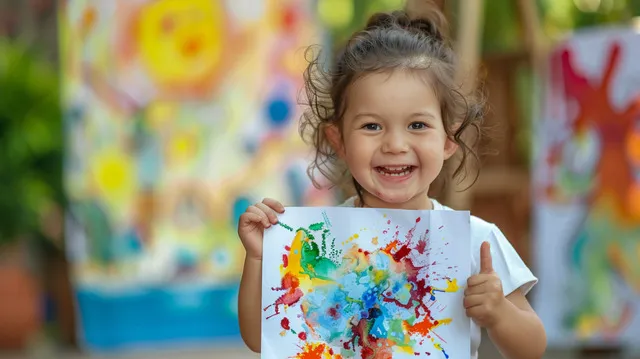
As we reach the end of our whimsical adventure through the world of coloring, it’s clear that this simple activity holds a universe of possibilities. From classic pages reimagined to nature-inspired masterpieces, from storytelling through color to embracing the magic of technology, coloring is a journey that sparks joy, ignites creativity, and nurtures young minds.
I encourage you, dear reader, to embark on this colorful journey with your children. Explore the ideas shared here, adapt them to your own family’s unique rhythm, and most importantly, let the spirit of playfulness and imagination guide you. Let each stroke of color be a brushstroke of joy, a celebration of individuality, and a testament to the endless wonders that reside within every child’s heart.
And remember, as you embark on this artistic adventure, share your discoveries, your laughter, and your colorful creations with the world. Let’s create a tapestry of inspiration, where the vibrant hues of childhood dreams intertwine to create a masterpiece that’s truly one-of-a-kind.
So go forth, grab those crayons, paints, or digital brushes, and let the magic unfold! As the great artist Pablo Picasso once said, “Every child is an artist. The problem is how to remain an artist once we grow up.” Let’s nurture that innate artistry in our children, one colorful adventure at a time.
FAQs
Can coloring really help my child relax and de-stress?
Absolutely! Coloring allows children to focus their attention on a single, enjoyable activity, promoting mindfulness and reducing anxiety. The rhythmic motion of coloring can be incredibly soothing, helping them unwind and release pent-up energy.
My child gets bored with traditional coloring books quickly. What can I do?
Don’t despair! There’s a world of coloring adventures beyond the basic book. Try introducing your child to textured coloring with glitter and glue, glow-in-the-dark markers, or even rock painting outdoors. The novelty will rekindle their excitement and keep them engaged.
I’m not artistic myself. How can I help my child explore their creativity through coloring?
You don’t have to be an artist to foster your child’s creativity! Focus on creating a fun and supportive environment. Offer a variety of materials and let your child experiment freely. Ask open-ended questions about their color choices and encourage them to tell stories about their artwork.
Can coloring help my child develop skills beyond creativity?
Definitely! Coloring isn’t just about art. It can help children develop fine motor skills, hand-eye coordination, focus, and even language skills when you discuss their creations together. For older children, coloring activities that involve coding or problem-solving can even boost their logical thinking abilities.
My child has sensory sensitivities. Are there coloring activities that might be suitable for them?
Yes! Many sensory-friendly coloring options are available. Mess-free coloring books that use water to reveal colors, textured coloring pages, or even finger painting with edible paints can provide a fun and engaging experience for children with sensory sensitivities.

Hey everyone! I’m Rihanna, a digital artist who loves bringing a touch of magic to the world. My coloring pages are full of fantasy and wonder. I try to make characters and creatures that feel like they could leap off the page. Get ready to color a whole new world into existence!
